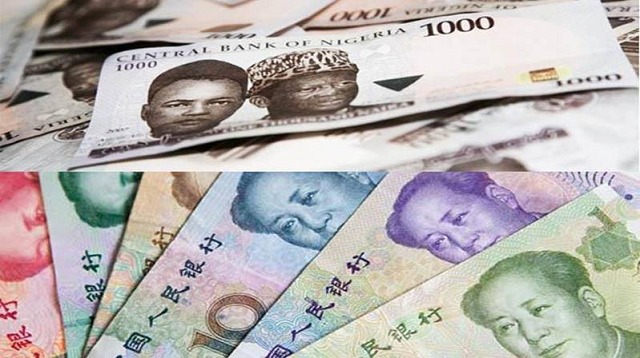A prominent issue currently engaging the intellect of economic analysts is the proposed currency swap between the Nigerian Naira and Chinese Yuan. In my University social media forum it has provoked intense debate. Currency swap is intended to mitigate the restrictions on trade caused by the non availability of trading currency and foreign exchange fluctuation. It was to overcome these restrictions that Nigeria opted for counter trade in the past. Counter trade is simply the exchange of goods and services between countries. It achieves the same purpose as the currency swap.
With this bilateral currency swap, a country can exchange its currency for a certain volume of foreign currency. Naira will be provided for Chinese business men and this will be complemented by the supply of Yuan to Nigerian businessmen. It will overcome most restrictions to trade and enhance its volume. Since sourcing for the naira will no more be a problem, the Chinese will now be encouraged to increase their trading and investment activities in the Nigerian economy.
I have reservations about the currency swap policy but some of my friends are so excited by it. They loathed my idea that cheap but inferior Chinese products should not be allowed to flood the Nigerian market. Their faith lies in the fact that Chinese products are available and affordable.
They have been enjoying their cheap rechargeable lamps and torch lights. The ladies among them have ionic bonding with Chinese products. But when I suggested to them to replace their wedding rings with Chinese rings they all declined. They knew it would break and the marriage would collapse.
An unwavering belief that the currency swap will benefit our economy is simplistic. China has all the characteristics to dominate the trade leaving Nigeria a poor player. Economics is a very dynamic discipline. It is upgraded daily with fresh insights. Most economic analysts are living in the past because they have stopped reading and updating themselves with current research findings. They cling to outworn theories with diminished value.
Up to the time I graduated in Economics from the University, the New Trade Theory had not been widely acclaimed. It was propounded by Paul Krugman the recipient of the 2008 Nobel Prize for economic sciences. Prior to his work, trade on comparative advantage was emphasized.
The investment temper is restless, it will move from place to place to identify areas with the highest returns. This is the core of the arbitrage process propounded by Franco Modigliani the 1985 Nobel Prize winner for economic sciences. The restrictions inherent in the currency swap will hinder the fluidity of choice in the international market especially for a developing country like Nigeria.
It is feared that the currency swap engagement may not be with utmost good faith. It is highly probable that all material disclosures required for the efficiency of the market may not be disclosed.
This leads us to the realm of information economics introduced into economic analysis by the joint 2001 Nobel Prize winners for economic sciences, Joseph Stiglitz, George Akerlof and Michael Spence. They identified the role of asymmetrical information in transactions between parties. A fundamental principle in classical economics is that the free market operates best without government intervention. It is this principle their theory on asymmetrical information challenged.










